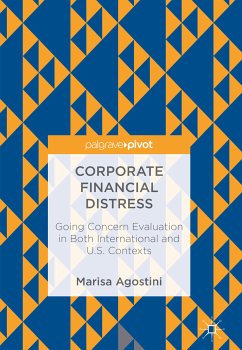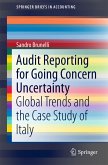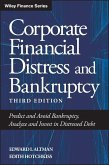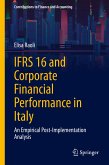This book, divided into three main parts, will offer a complete overview of the concept of corporate financial distress, emphasizing the different typologies of corporate paths included in this broad concept. It will reorganize and update academic literature about the evaluation of corporate financial distress from the first studies about failure prediction to the most recent contributions. It will also provide evidence about the evolution of going concern standards in both international and U.S. contexts. Moreover, an in-depth analysis of this broad concept will permit the identification of a set of research questions to be investigated from both theoretical and empirical points of view, and will be of interest to academic researchers and doctoral students of accounting, auditing and finance, professionals, and standard setters.
Dieser Download kann aus rechtlichen Gründen nur mit Rechnungsadresse in A, B, BG, CY, CZ, D, DK, EW, E, FIN, F, GR, HR, H, IRL, I, LT, L, LR, M, NL, PL, P, R, S, SLO, SK ausgeliefert werden.









